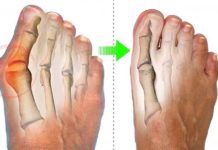Apathy is for many a synonym for depression, and although they are feelings or similar sensitive pictures, it is important to emphasize that they are not the same.The fact is that differentiating them may be confusing.
However, to achieve it in a simple way, we could say that apathy is based on alterations in motivation.
On the other hand, depression is directed towards emotions. And, although both are usually accompanied, there are times when one manifests itself without the presence of the other.
This time we will focus on talking about apathy, and try not to pose it as a sentiment or a sensitive picture of the whole negative , to focus a little more on its usefulness.
What is apathy?
 In a scientific way, apathy is defined as a “neurobehavioral” syndrome, which means that it is linked to the brain and its way of affecting behaviors or behaviors.In itself, apathy is recognized by the absence of will and interest.
In a scientific way, apathy is defined as a “neurobehavioral” syndrome, which means that it is linked to the brain and its way of affecting behaviors or behaviors.In itself, apathy is recognized by the absence of will and interest.
And frequently, it also lies in the absence of emotions. All this refers to the daily activities that a person can perform or any circumstance that surrounds it.
In addition to being confused with depression, it is also misused as a synonym of indifference , lack of attention and even drowsiness.
We will see that, when a person shows apathy, he can be attentive, awake and even happy. What does happen is that it has a notable lack of interest when it comes to making certain or perhaps all kinds of activities.
Is it 100% negative?
If we understand its definition well we will realize that it is not a disease, much less a disability picture.
In fact, it can be considered simply as a temporary state, which can be voluntary or not .
However, given that we live surrounded by a society that does not stop and that values facts and actions in a meaningful way, it is not surprising that apathy is seen as something negative. But it is? The truth is, no.
It is not a negative state, much less when it is voluntary and selective.
In fact, this statement can be appreciated with some doctrines such as, for example, Buddhism. If we pay attention, Buddhism is a kind of directed apathy .
This discipline or religion seeks to appease excessive reactions, passions and emotions. All this in order to find inner and outer plenitude.
What should we pay attention to?
 Many times apathy can be related to psychological illnesses, emphasizing that it is not one of them.However, in any case, whether it is voluntary or preceded by an illness, the result is the same: the lack of initiative when carrying out activities and the reduction of feelings and emotions.What is worth detailing is that being in the presence of a picture of apathy, we are also in a state of peace .
Many times apathy can be related to psychological illnesses, emphasizing that it is not one of them.However, in any case, whether it is voluntary or preceded by an illness, the result is the same: the lack of initiative when carrying out activities and the reduction of feelings and emotions.What is worth detailing is that being in the presence of a picture of apathy, we are also in a state of peace .
- This can allow us a better recognition of our thoughts, emotions, feelings and feelings.
- Thus, we could be in a more optimal state of consciousness .
The benefits of apathy
Having made it clear that apathy is not exactly a negative state, we could mention some of its benefits.
1. It helps us achieve emotional balance
 We have mentioned before that in a state of apathy we have the possibility to recognize and evaluate more effectively our emotions and feelings.So, when we understand what we feel and how and why we react , it is possible to find our emotional balance.
We have mentioned before that in a state of apathy we have the possibility to recognize and evaluate more effectively our emotions and feelings.So, when we understand what we feel and how and why we react , it is possible to find our emotional balance.
2. It gives us more time to decide
Without acting, we have more time to decide.
This is an opportunity that we can give ourselves when we do not act or react.
Which can contribute to us having even more time to evaluate situations and, therefore, make better decisions.
3. We enter into emotional awareness
Many times apathy is linked to depression.
Before both tables we usually react defensively. We intend to leave them quickly to return to being “active” and “positive” people.
Given this situation, it is advisable that we take the necessary time to “listen to our apathy”.
If we do, we can enter into a state of emotional awareness that allows us to identify the reasons for our sadness or loss of motivation , and thus be able to work on an emotional evolution.
Finally, we must also consider that there are involuntary and prolonged apathy pictures (chronic states) that require consultation with specialists.
To identify these cases, it is enough to analyze the fact of whether or not we can, in a non-persistent way, move away from apathy. In case these attempts do not result, we recommend a visit to a specialist.













